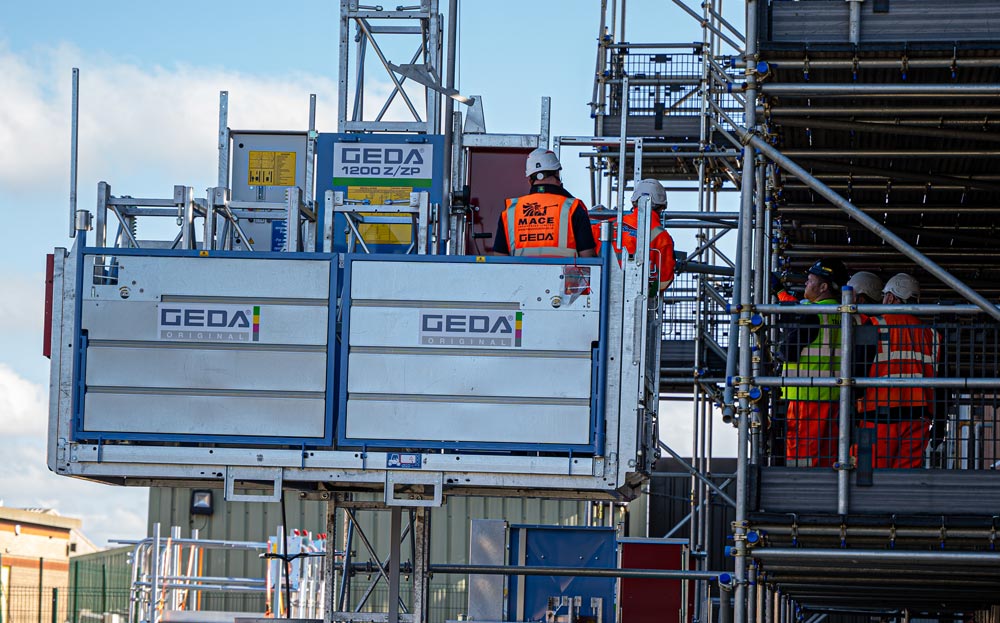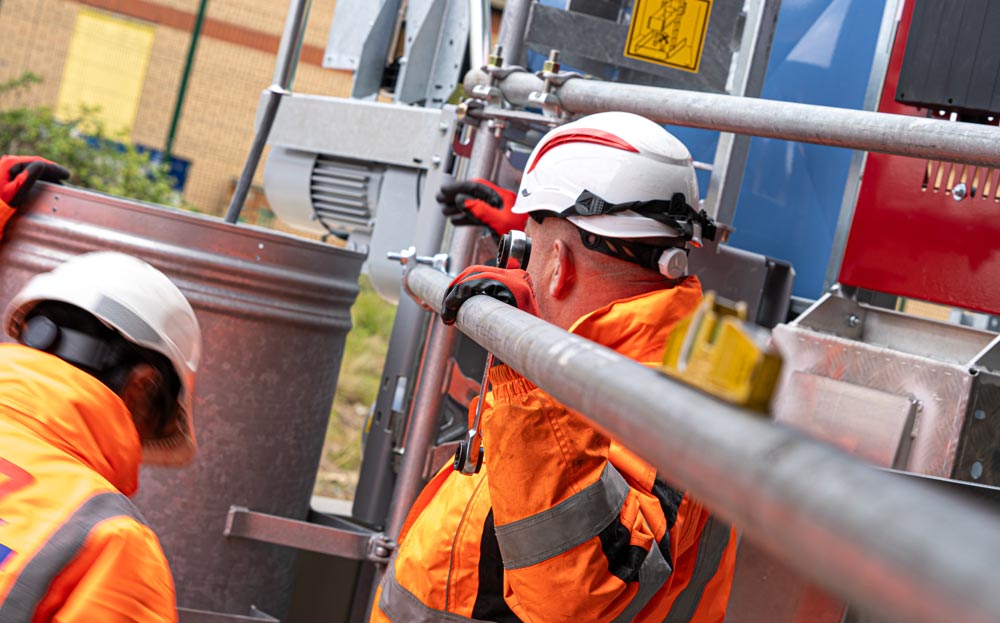Overview
The IPAF Hoist Installer course is designed for individuals who are responsible for the installation, setup, and dismantling of hoists used in construction, industrial, and other elevated work applications. This course provides participants with the knowledge and practical skills required to safely and efficiently install hoisting systems, ensuring they meet legal and safety standards. Participants will learn the correct procedures for assembling, securing, and commissioning hoists, along with the best practices for performing pre-installation checks, testing, and ensuring operational safety before use.
This course combines theoretical instruction with hands-on practice, enabling attendees to gain the technical expertise needed to handle hoist installation tasks with confidence while adhering to safety regulations and site requirements.
Who Should Attend?
This course is aimed at professionals who are directly involved in the installation and dismantling of hoists. It is suitable for:
- Hoist installers and riggers
- Site supervisors and coordinators overseeing hoist installation
- Maintenance personnel involved in hoist setup and teardown
- Safety officers responsible for ensuring safe installation practices
- Contractors and subcontractors specialising in lifting equipment installation
Prior experience in rigging, hoisting equipment operation, or related fields is recommended, though the course is suitable for individuals looking to expand their knowledge and technical expertise in hoist installation.
What You’ll Learn
The IPAF Hoist Installer course provides comprehensive training on the installation process, safety protocols, and maintenance requirements for hoists, covering the following key topics:
- Introduction to Hoists: Overview of different types of hoists (e.g., material hoists, personnel hoists, transport platforms), their components, and applications.
- Regulatory and Safety Standards: Understanding the legal framework surrounding hoist installation, including IPAF guidelines, local regulations, and international standards (e.g., BS, EU).
- Pre-Installation Planning: How to assess the site for safe hoist installation, including evaluating the structural integrity of the location, understanding the hoist’s load capacities, and identifying potential hazards.
- Hoist Assembly and Installation: Step-by-step procedures for assembling and installing hoists safely. This includes rigging, positioning, securing, and testing the equipment to ensure proper functionality.
- Testing and Commissioning: How to conduct operational tests, including load testing, to ensure the hoist operates correctly and safely before use.
- Installation Safety Protocols: Emphasising the importance of safety measures during installation, such as fall protection, PPE (Personal Protective Equipment), and site safety coordination with other teams.
- Post-Installation Checks and Maintenance: How to perform initial inspections and routine maintenance tasks on hoists after installation, ensuring they remain in safe working condition.
- Emergency Procedures and Risk Mitigation: Identifying potential risks during installation and implementing strategies to avoid accidents, as well as handling emergencies related to hoist installation.
- Dismantling and Decommissioning: Safe procedures for dismantling hoists once the installation is complete or when the equipment is no longer required on-site.
Certification & Assessment
Upon successful completion of the course, participants will receive an IPAF Hoist Installer Certificate and an IPAF PAL Card (Powered Access License) digitally via the IPAF ePAL app which is recognized internationally and indicates that the holder is qualified to install hoists safely and effectively.
Assessment: The course includes both theoretical and practical assessments. The theoretical exams tests participants on their knowledge of regulations, safety procedures, installation techniques, and maintenance practices. The practical assessments involves demonstrating the ability to safely and correctly install, assemble, and test a hoist on-site.
Validity: The IPAF ePAL Card for Hoist Installers is valid for 5 years. To maintain certification, installers must complete a revalidation course at the end of this period.
By completing this course, hoist installers will be equipped with the technical skills and safety knowledge needed to perform high-quality installations and contribute to a safer, more efficient work environment. The IPAF Hoist Installer certification also helps ensure compliance with legal and industry standards, making it an essential qualification for those involved in hoist installation tasks.
Maximum Candidates
Maximum of 4 candidates
Duration
5-7 days (can be non-consecutive) depending on experience.
Price
POA


Find a date that works

Hi there, I'm Scott Grant
Scott Grant is a seasoned Training Manager and Royal Navy veteran with over 20 years of expertise in the training and access equipment industry. He delivers accredited training programs for MEWPs, MCWPs, construction hoists, health and safety, first aid, and fire safety.
Scott is a Senior IPAF Instructor and certified PASMA Instructor and also delivers CITB and IOSH-accredited courses, ensuring industry-leading standards and compliance with health and safety regulations.
Here at Mace Training, Scott plays a pivotal role in developing training strategies that address evolving workforce needs, helping professionals operate safely and efficiently in demanding environments.

Scott Grant
Training Manager
